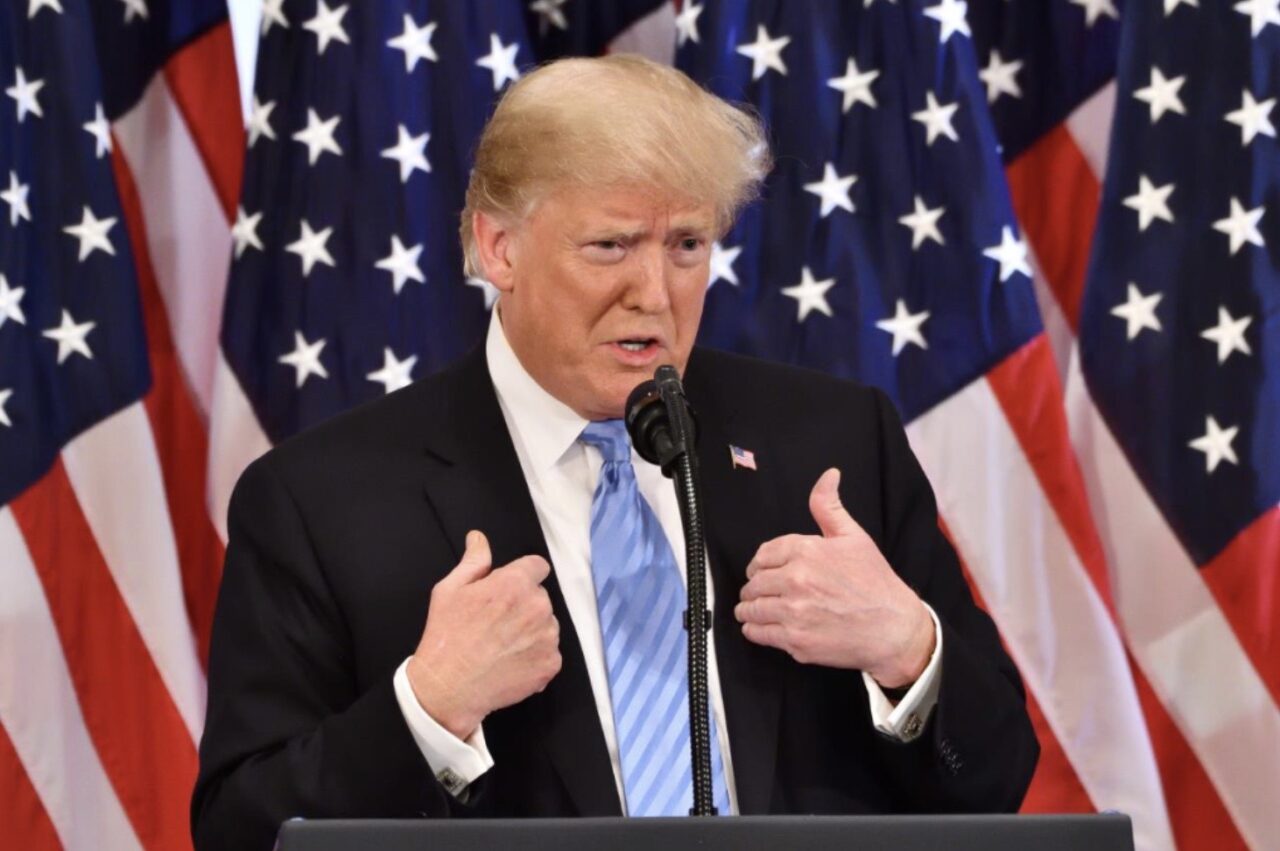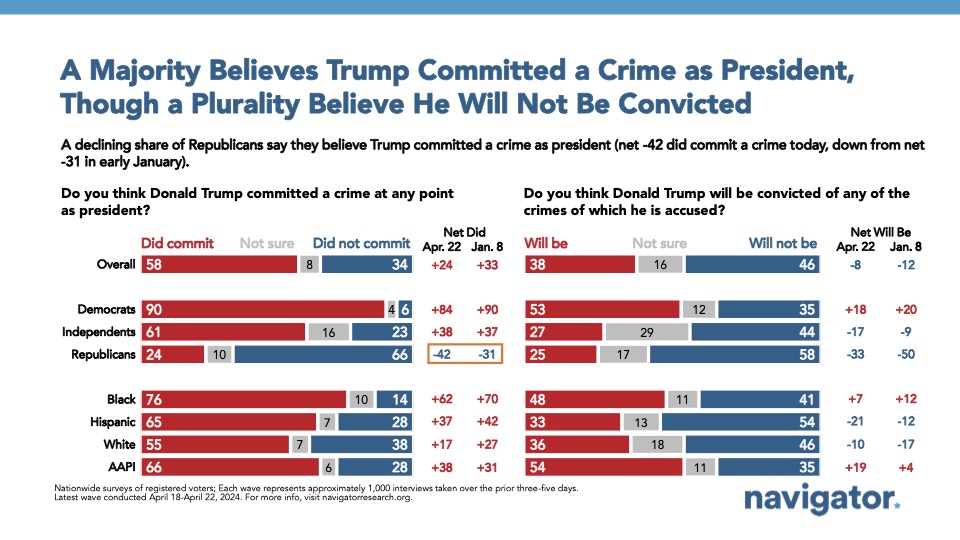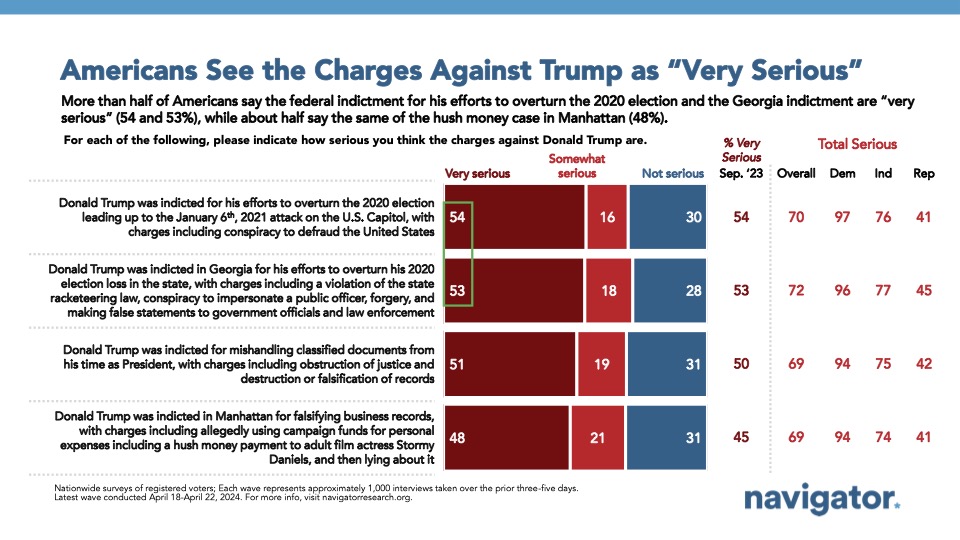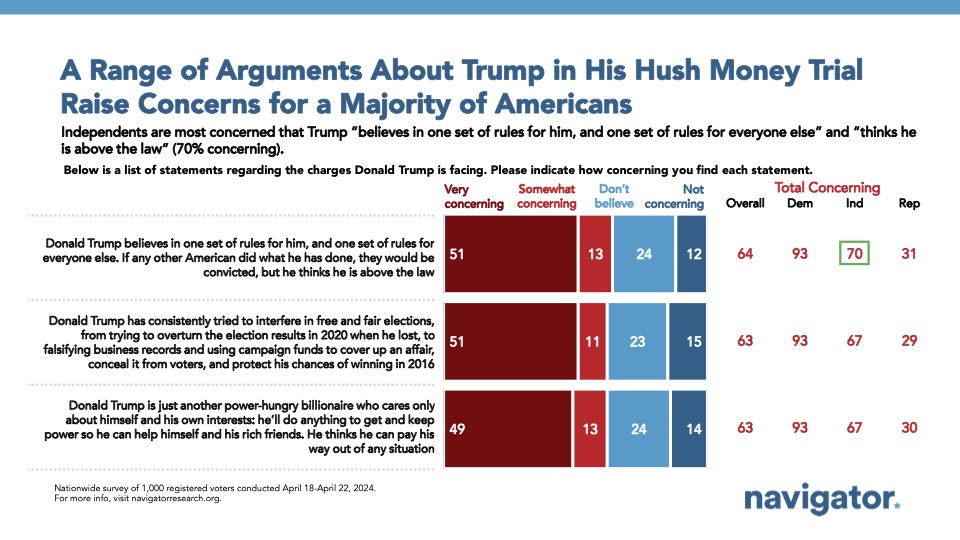Poll: The Criminal Charges Against Donald Trump
This Navigator Research report contains polling data on the latest perceptions of former President Donald Trump as his New York criminal trial is ongoing, including how serious Americans view each of the indictments Trump is charged with and the top concerns about the charges against him.
As Trump’s criminal trial in New York continues, nearly three in five Americans continue to believe Trump committed a crime as president.
By a 24-point margin, a majority of Americans believe Trump committed a crime as president (net +24; 58 percent committed a crime – 34 percent did not commit a crime), including 90 percent of Democrats, 61 percent of independents, 24 percent of Republicans, and 76 percent of Americans who are unfavorable toward both President Biden and former President Trump. 15 percent of Republicans who identify as part of the MAGA movement believe Donald Trump committed a crime compared to a third of non-MAGA Republicans (32 percent).
- While a quarter of Republicans believe Trump committed a crime as president, the share has declined by a net 11 points since January (from net -31 to net -42; 24 percent committed a crime – 66 percent did not commit a crime).
- A plurality of Americans do not believe Trump will be convicted of any crime (46 percent) compared to just 38 percent who believe he will be. Democrats are the most likely to believe Trump will be convicted (53 percent) whereas only one in four independents and Republicans believe he will be convicted (27 percent and 25 percent, respectively).
Seven in ten Americans believe each of the indictments against Donald Trump are serious, including his falsifying of business documents.
72 percent of Americans view the charges against Donald Trump for his attempt to overturn the 2020 election in Georgia as serious, with 52 percent believing the charges are “very” serious. Similarly, 70 percent believe the charges against Donald Trump for his efforts to overturn the 2020 election leading to the attack on the U.S. Capitol are serious (54 percent say they are “very” serious charges), 69 percent believe the charges against him for mishandling classified documents are serious (51 percent say they are “very” serious charges), and 69 percent believe the charges for falsifying business documents including a hush money payment to Stormy Daniels and then lying about it are serious (48 percent say they are “very” serious charges).
Americans are most concerned that Trump “doesn’t believe laws apply to him.”
The most concerning statements about the charges Donald Trump is facing are that he consistently tries to interfere in free and fair elections and that he believes he is above the law. 64 percent of Americans — including 93 percent of Democrats, 70 percent of independents, and 30 percent of Republicans — find the following statement concerning: “Donald Trump believes in one set of rules for him, and one set of rules for everyone else. If any other American did what he has done, they would be convicted, but he thinks he is above the law.” The framing of “no one is above the law” being effective is consistent with our past research: in a Navigator survey from August 2023, 62 percent agreed with a statement that read: “no politician is above the law, not even a president or a former president… the evidence is clear that Donald Trump should be indicted for these crimes, no matter what positions he holds or is running for.”
- 63 percent express concern with the following statement, including 51 percent who find it “very” concerning: “Donald Trump has consistently tried to interfere in free and fair elections, from trying to overturn the election results in 2020 when he lost, to falsifying business records and using campaign funds to cover up an affair, conceal it from voters, and protect his chances of winning in 2016.”



